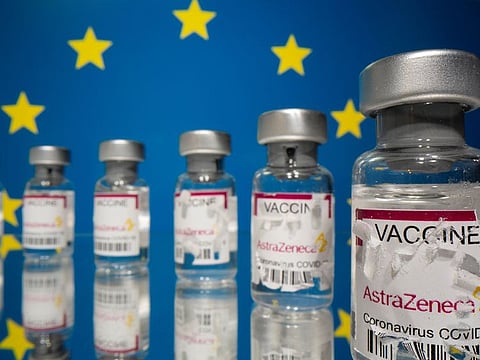Public trust in mass inoculation process key to beating COVID-19
Knee jerk response by some European countries runs the risk of eroding trust on vaccines

The European Union’s health regulator may have averted a potential global trust crisis in vaccines on Tuesday when it said benefits of AstraZeneca PLC’s Covid vaccine outweigh the risks. The announcement by European Medicines Agency came after several countries, including Germany, Italy and Spain halted AstraZeneca jabs following incidents of blood clotting among a few vaccine recipients.
This came after weeks of blame game between European countries and AstraZeneca Plc over production schedules.
The European countries’ stand on AstraZeneca Plc has the potential to undermine public support for other vaccines, a concern noted by the European Medicines Agency. The EU agency is expected to make a formal statement on Thursday and the World Health Organisation is planning to disclose outcome of its advisory group review.
The decision to halt the vaccine by big European countries appeared to be synchronised and taken in a haste, without taking into account WHO advisories and favourable statements from other countries that have inoculated millions with AstraZeneca.
This disturbing episode should be a lesson for health regulators and governments — one wrong statement can lead to rapid erosion of public trust in vaccination, a terrifying prospect that can potentially derail global response to the pandemic. Already, vaccine hesitancy is a serious issue in many countries, including India and the United States where inoculation timetables have been impacted because of low turnout at vaccine centres.
Still, both drug makers and health regulators must not be dismissive about reports of adverse reactions of vaccines without a scientific review of such incidents.
Each case should be investigated, patterns monitored and shared with the WHO, health regulators and global scientific community. International drug makers have tested, produced and delivered vaccines in record time and even the regulators adopted accelerated timelines to ensure early availability of shots.
Also, vaccines were tested in limited geographical territories and age groups. That is why, possibility of adverse events cannot be ruled out. Governments must devise a formal mechanism to deal with such cases and avoid a knee jerk response of suspending vaccines.
The WHO, especially, has a greater role and responsibility to build and sustain public trust in mass inoculation process. Experiences in polio immunisation show that misinformation and mistrust are main factors behind vaccine hesitancy in many parts of South Asia.
As nations ramp of vaccination to cover all age groups, they must ensure that public support for vaccination remains intact.



